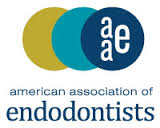Even the most hygienic person experiences a bout of bad breath on occasion, but for others the problem is more severe. Chronic bad breath, also called halitosis, is more persistent and can linger long after you’ve brushed your teeth. Others with halitosis report that the unpleasant odor returns within a few hours of their morning hygiene regimen. The problem with masking bad breath with mints and gum is that it doesn’t address the underlying cause — a cause that could have serious implications for your oral health. Dr. Todd Pizzi at Modern Dentistry of Shrewsbury offers insight into preventing bad breath in Shrewsbury, MA.
Solution: Watch Your Mouth (Or What You Put in It, Rather)
Some foods, such as onions and garlic, produce an overpowering odor that simply cannot be chased off with brushing or breath mints. According to Dr. Pizzi, this is because chemicals in these foods actually end up in your bloodstream, then spread throughout your lungs. With each exhalation comes an embarrassing smell. What does this mean? For starters, don’t eat either of these foods if you plan to find yourself in close proximity to others. The good news is that other pungent foods have much less staying power than garlic or onions. The easiest way to temporarily mask odors is to chew a stick of sugarless gum, preferably one that contains the sweetener Xylitol. The most effective way, on the other hand, is to politely excuse yourself and brush your teeth. At the very least, use plain water to rinse your mouth.
How does this help? It doesn’t take long for leftover food to produce bad breath. Bacteria living in your mouth use these bits as fuel, and volatile sulfur (that is to say, smelly) compounds form. Brushing and rinsing removes food and residue from on, between, and around your teeth and gums.
Kick Your Bad Habit
If you chew or smoke tobacco products, you might argue that bad breath is the least of your health concerns. True, halitosis is less unpleasant than, say, oral cancer or tooth loss. Even so, what better time to make a positive change than right now? Professional teeth cleaning will improve breath problems caused residue on your teeth, and your dental exam includes screening for gum disease and oral cancer – two other conditions that are more prevalent in tobacco users, and both of which have been linked to foul breath.
How does this help? Tar and other forms of harmful residue cling to teeth, gums, and oral tissues, making teeth appear yellow and unhealthy. As the residue is cleared away, most people experience improvements in their ability to taste and smell. This makes it much easier to determine whether you have bad breath.
Boost Your Brushing Efforts (Flossing, too)
The most common cause of a bad taste or odor is poor oral hygiene. The American Dental Association advises brushing your teeth twice each day for a full two minutes each time. Floss a minimum of once a day to remove sneaky, smelly substances from between teeth, and use an alcohol-free mouthwash to eliminate microbes that could be causing bad breath.
Why does it work? Most unpleasant odors emit from a mixture of food and bacteria, which hides throughout your mouth, near the back of your tongue, and near the gum line.
Bad breath is bad news. To learn more about treating bad breath, or to schedule an appointment with one of our doctors, contact our Shrewsbury, MA dentist office at (508) 842-8838. We welcome patients living in Shrewsbury, North and South Grafton, Worcester, Boylston, and the neighboring communities.










